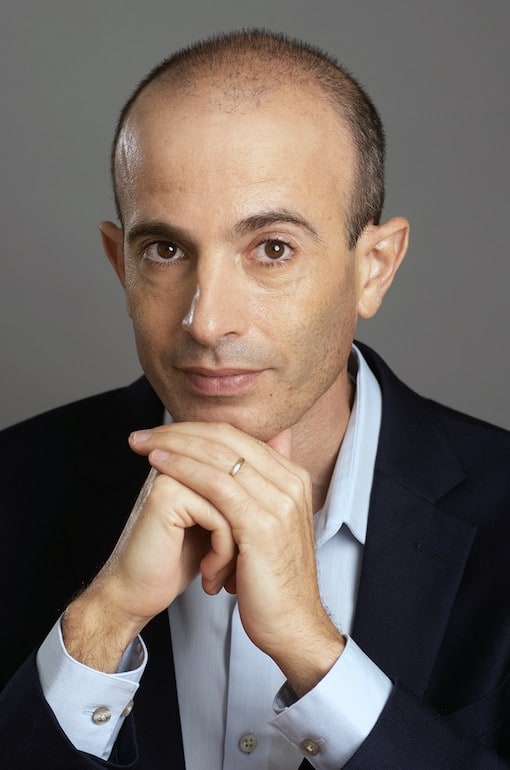


This event premieres on November 23 at 6pm PST/9pm EST
PURCHASE TICKET (INCLUDES BOOK)
$38 includes a copy of the book to US addresses*
$48 includes a copy of the book to addresses outside the US*
*shipping included and books ship week of Nov 21
YUVAL NOAH HARARI is a historian, philosopher, and the bestselling author of Sapiens: A Brief History of Humankind, Homo Deus: A Brief History of Tomorrow and 21 Lessons for the 21st Century. His books have sold 27 Million copies in 60 languages, and he is considered one of the world’s most influential public intellectuals today. The Guardian has credited Sapiens with revolutionizing the non-fiction market and popularizing “brainy books”.
JUDD APATOW, one of the most sought-after comedic minds in the industry, has directed, produced and written many of the biggest comedy films and hit TV shows of the last two decades. Apatow’s latest feature The King of Staten Island, starring Pete Davidson, Marisa Tomei and Bill Burr, is inspired by events from Davidson’s own life. Previous director credits include The 40-Year-Old Virgin, Knocked Up, Funny People, This is 40, and Trainwreck. He produced the Academy Award®-nominated films The Big Sick, Bridesmaids as well as Superbad and Anchorman. In television he was the executive producer of Freaks and Geeks, Girls, Crashing and Love.
“What makes it so interesting and provocative is that because it’s such a condensed sweeping history it talks about some core things that have allowed us to build this extraordinary civilization that we take for granted, but weren’t a given, and it gives you a sense of perspective in how briefly we’ve been on this Earth.”
— President Barack Obama
In 2020 Harari joined forces with renowned comics artists David Vandermeulen and Daniel Casanave, to create Sapiens: A Graphic History: a radical adaptation of the original Sapiens into a graphic novel series that is bursting with wit, humour and color. This illustrated book casts Yuval Noah Harari in the role of guide, who takes the reader through the entire history of the human species, accompanied by a range of fictional characters and traveling through time, space and popular culture references.
In this first volume, Harari tells the story of humankind’s creation and evolution, exploring the ways in which biology and history have defined us and enhanced our understanding of what it means to be “human.” From examining the role evolving humans have played in the global ecosystem to charting the rise of empires, Sapiens challenges us to reconsider accepted beliefs, connect past developments with contemporary concerns, and view specific events within the context of larger ideas.
Featuring 256 pages of full-color illustrations and easy-to-understand text covering the first part of the full-length original edition, this adaptation of the mind-expanding book furthers the ongoing conversation as it introduces Harari’s ideas to a wide new readership.
Born in Haifa, Israel, in 1976, Harari received his PhD from the University of Oxford in 2002, and is currently a lecturer at the Department of History, the Hebrew University of Jerusalem. He originally specialized in world history, medieval history and military history, and his current research focuses on macro-historical questions such as: What is the relationship between history and biology? What is the essential difference between Homo sapiens and other animals? Is there justice in history? Does history have a direction? Did people become happier as history unfolded? What ethical questions do science and technology raise in the 21st century? One hundred thousand years ago, at least six different species of humans inhabited Earth. Yet today there is only one—homo sapiens. What happened to the others? And what may happen to us?
